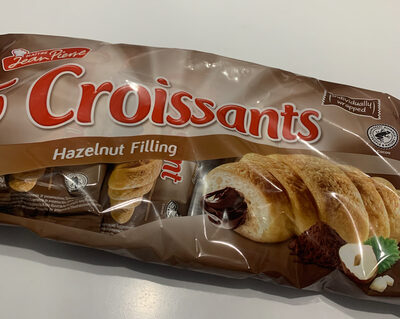
Barcode: 20399412
Croissants Hazelnut
DOUBTFUL
📝 Reason: The product contains several ingredients with doubtful Halal status due to unspecified sources or missing Halal certification for animal-derived ingredients. Islamic dietary laws require clear Halal certification for all animal products and avoidance of doubtful substances. The presence of such ingredients makes the overall product doubtful for Halal consumption.
📄 Certificates: None
Ingredients:
Details
Introduction to Croissants Hazelnut
Croissants Hazelnut has gained attention for its rich flavor and delightful texture, but for a significant portion of consumers, the Halal status of this product is crucial. In this post, we will thoroughly investigate the Halal status of Croissants Hazelnut, examining its ingredients and the concern over the use of certain additives.
Understanding Halal Certification
Halal is an Arabic term meaning ‘permissible’ in English. In terms of food products, Halal is a dietary standard defined in Islamic law, which dictates how food should be prepared and what ingredients may be utilized. For a product to be recognized as Halal, all its ingredients must comply with Islamic dietary laws, which necessitate clear certification.
Is Croissants Hazelnut Halal?
The Halal status of Croissants Hazelnut is currently classified as DOUBTFUL. This designation arises from the presence of several ingredients for which the sources are unspecified, particularly those derived from animals. In Islamic dietary laws, animal-derived ingredients must have clear Halal certification. If that information is lacking, it raises suspicion regarding the product’s compliance.
Breaking Down the Ingredients
The ingredients of Croissants Hazelnut include:
- Lecithine
- Mono – und Diglyceride von Speisefettsäuren
- Natriumstearoyl-2-lactylat
- Vollei
- Mager-milchpulver
- Palmfett
- Zucker
- Haselnüsse
- fettarmes Kakaopulver
- natürliches Aroma
- Hefe
- Rapsöl
- Glycerin
- Weizeneiweiß
- Wasser
- Speisesalz
- Natriumacetate
- Citronensäure
Examination of E-numbers and Ingredients
Here’s a detailed examination of specific E-numbers and ingredients:
- E322 (Lecithine): Derived from soy or eggs; however, its precise source remains unspecified, rendering its Halal status uncertain.
- E471 (Mono-und Diglyceride von Speisefettsäuren): The source of fatty acids is not specified, which may align with Halal or non-Halal standards.
- E481 (Natriumstearoyl-2-lactylat): Similarly, the source is not clarified, causing doubts regarding its Halal compliance.
- Vollei (Whole Egg): Lacks Halal certification.
- Mager-milchpulver (Skimmed Milk Powder): Typically Halal if sourced from Halal-compliant dairies.
- Palmfett (Palm Fat): Plant-derived, thus generally Halal.
- Zucker (Sugar): Plant-derived and usually Halal.
- Haselnüsse (Hazelnuts): Plant-derived, Halal in nature.
- fettarmes Kakaopulver (Low-fat Cocoa Powder): Halal-friendly as it’s plant-derived.
- natürliches Aroma (Natural Flavor): Source unspecified; raises questions about its Halal status.
- Hefe (Yeast): Generally considered Halal.
- Rapsöl (Canola Oil): Plant-derived and Halal-friendly.
- Glycerin: Source unspecified, thus potentially questionable.
- Weizeneiweiß (Wheat Protein): Plant-derived, Halal in nature.
- Wasser (Water): Halal.
- Speisesalz (Table Salt): Halal.
- Natriumacetate (Sodium Acetate): Synthesized, generally Halal.
- Citronensäure (Citric Acid): Generally considered Halal.
Conclusion
Given the presence of ingredients in Croissants Hazelnut with dubious Halal status, potential consumers must exercise caution. Islamic dietary standards necessitate clear certifications for all components, particularly those that are animal-derived. Therefore, if you are strict about Halal consumption, you may want to reconsider before indulging in Croissants Hazelnut unless further clarification is provided.

